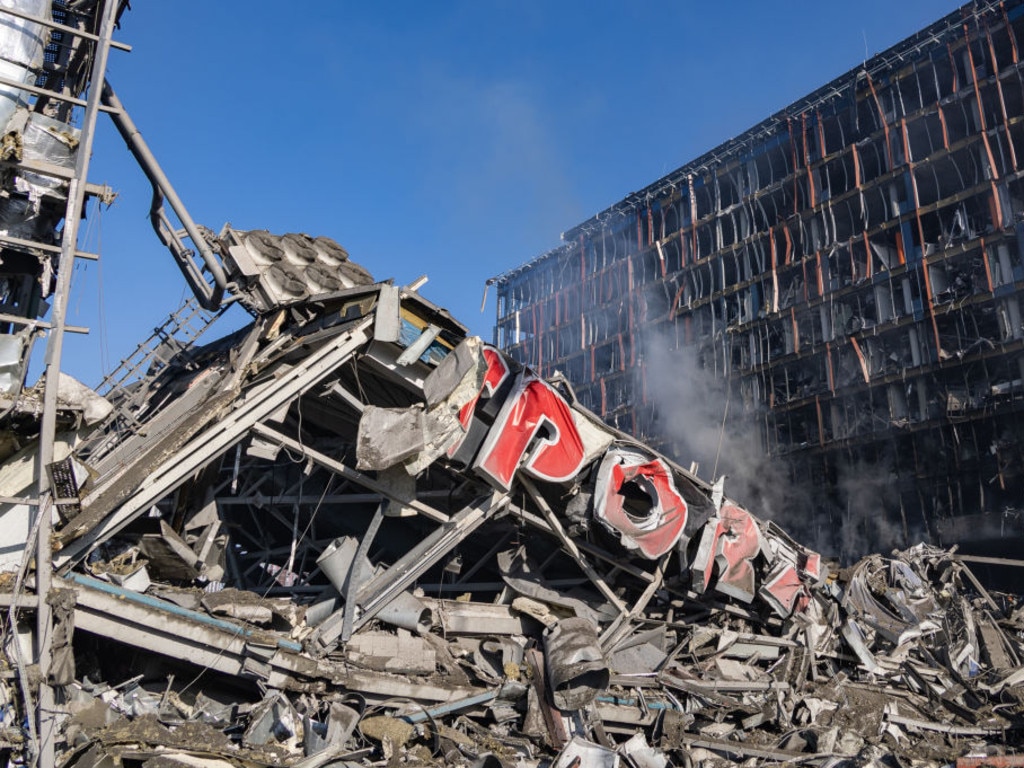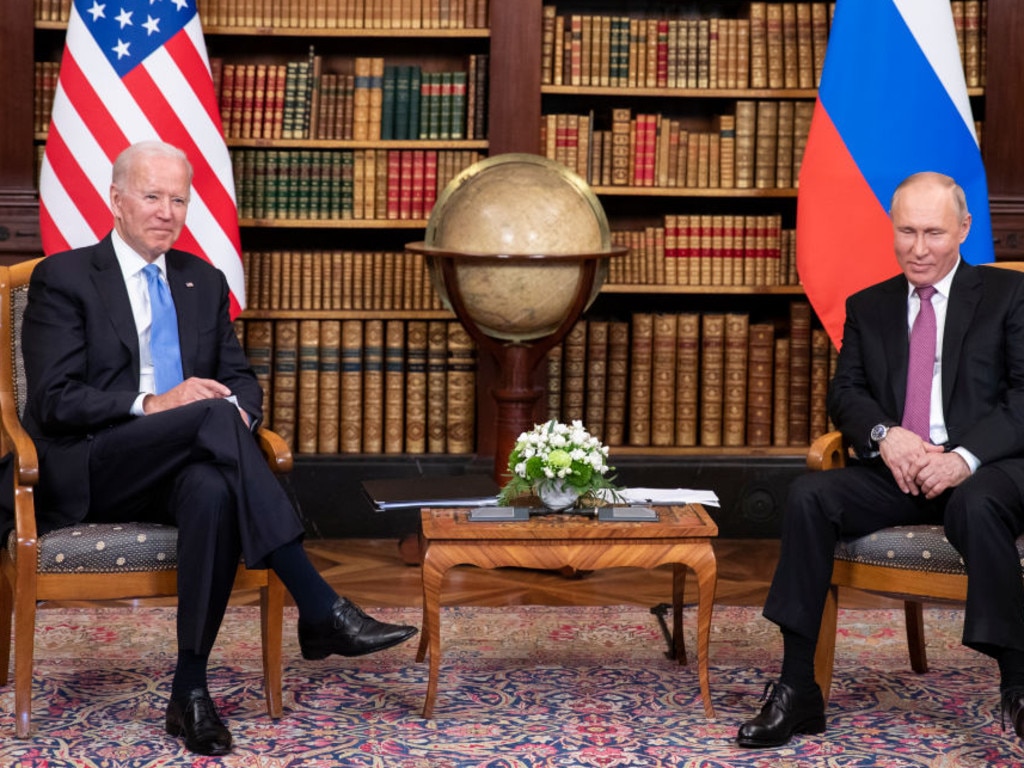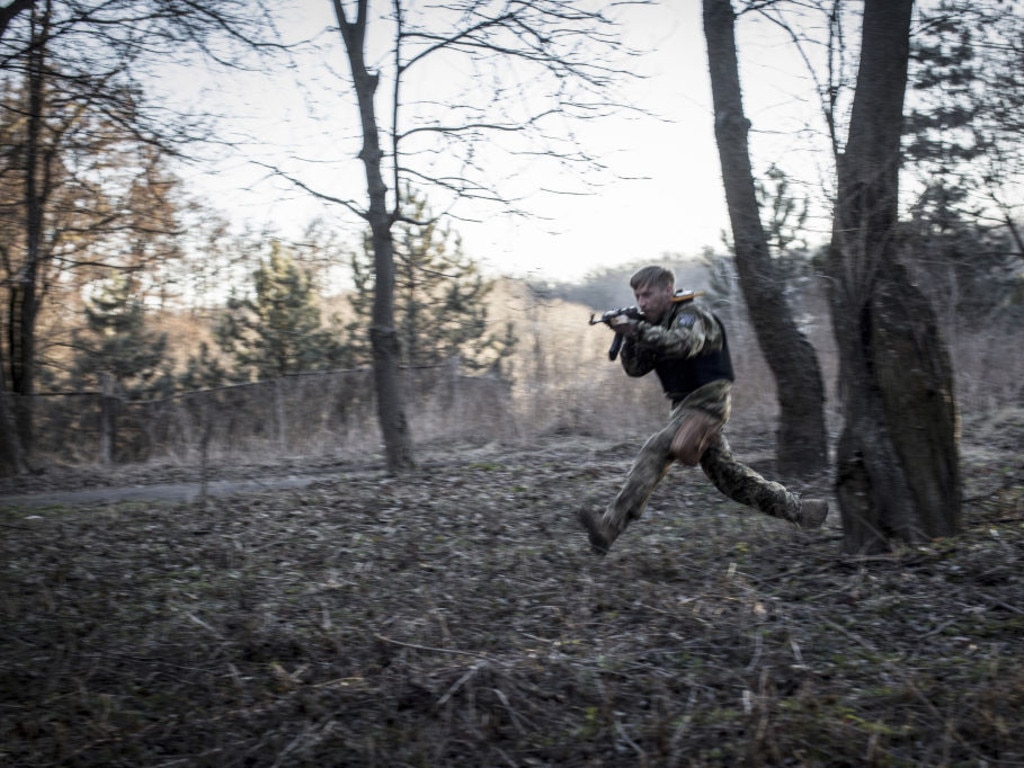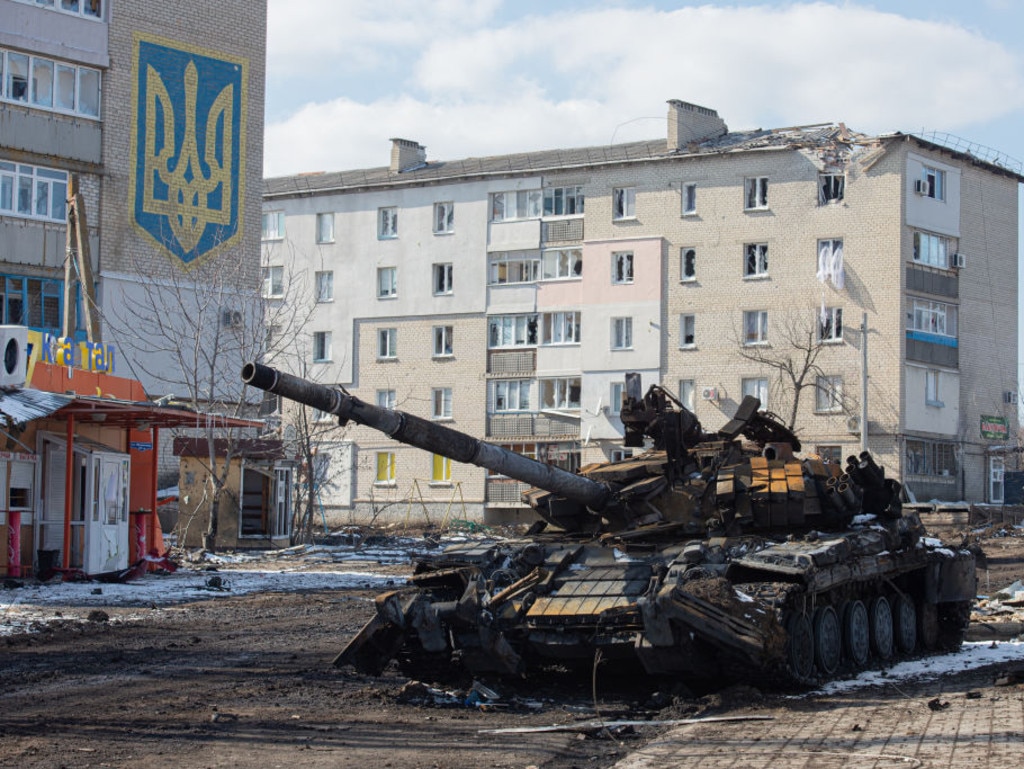‘Sleepwalking into war’: NATO’s new fear in Russia’s Ukraine invasion
With communications cut off between the United States and Russia, experts fear the world may “sleepwalk” into World War III.
There are growing fears a breakdown in communication between superpowers during the Ukraine conflict may have intensified the threat of a major international conflict.
A new report revealed military leaders in the United States have been blocked from contacting their Russian counterparts since the invasion of Ukraine began in late February, leaving the world’s two largest nuclear powers under an information cloud as NATO attempts to end the war without expanding its scope.
The West has continued its efforts to deter Russia throughout a month of fighting, introducing widespread sanctions in an attempt to choke the nation’s economy from within. Leaders will discuss further action at a NATO summit in Brussels in the coming hours.
Russia’s military has hit several snags in its advance, losing thousands of soldiers to Ukraine’s staunch defence.
Videos of demoralised Russian troops and reports of a platoon of 220 soldiers refusing orders offered a small view into the invading force’s declining morale, but it is still unknown just how far Vladimir Putin is willing to go to claim the contested territory.
The West has refused to send troops to the war zone and will likely hold firm. It is unclear exactly what further atrocities Putin would have to commit before an international consensus could be reached to join the war.
Analysts from the US warned even a single incident or miscalculation from a soldier on the ground could spark a devastating butterfly effect.
Former Supreme Allied Commander of NATO James Stavridis highlighted the fact the majority of those fighting were still incredibly young and could potentially spark a much bigger catastrophe with one misplaced missile.
This risk is worse because of the lack of communication between US and Russian leadership.
“There is a high risk of escalation without the firebreak of direct contact between the most senior officials,” Admiral Stavridis, who filled the position from 2009 to 2013, said via the Washington Post.
“Very young people are flying in jets, operating warships, and conducting combat operations in the Ukrainian war. They are not seasoned diplomats, and their actions in the heat of operations can be misunderstood.”

Adm Stavridis warned the communications blackout would only make things worse over time, with US leaders now in the dark and left to play guessing games over Russia’s true intentions.
He said during his time in the military hot seat, a line was always open to some form of Russian authority, revealing he rang Moscow “on several occasions to clarify a situation and de-escalate”.
“We must avoid a scenario of NATO and Russia sleepwalking into war because senior leaders can’t pick up a phone and explain to each other what is happening,” he said.
Tensions were stoked again last week when Russian missile strikes killed dozens of Ukrainians near the Polish border. As a NATO member, Poland has strongly opposed the invasion and has made its own moves against Putin, expelling 45 Russian diplomats for espionage on Wednesday.
According to Adm Stavridis, if a Russian attack were to hit a NATO-occupied facility, a “nightmare scenario” would follow.

“A nightmare scenario would be a Russian missile or attack aircraft that destroys a US command post across the Polish-Ukrainian border,” he continued.
“A local commander might respond immediately, thinking the event was a precursor to a wider attack. This could lead to rapid and irreversible escalation, to include potential use of nuclear weapons.”
Rob Lee of the US Foreign Policy Research Institute said the risk of a widespread international conflict sprouting from the Ukraine war was of serious concern.
“The risks are obviously elevated currently,” he said.
“Russia is striking targets in western Ukraine, which are not far from the border with NATO members, and the Ukrainian Air Force apparently continues to operate from that region, which means there is a risk that its aircraft could be mistaken for NATO aircraft across the border.”
US President Joe Biden staunchly opposed sending US troops to Ukraine, but ominously warned it would “defend every inch of NATO territory”, some of which is perilously close to the Ukrainian border.


Ukrainian officials, including President Volodymyr Zelensky and Foreign Minister Dmirto Kuleba, have been criticised for urging Western powers to come to the nation’s defence on the ground, with many quick to point out it could mark the beginning of World War III.
With superpowers China and India yet to officially condemn Russia’s territorial move, the playing field appears shaky at best.
While remaining adamant against sending troops, the US and other NATO nations have committed to sending military supplies, including anti-air missiles, to forces on the ground in Ukraine. Earlier this month, Mr Biden confirmed a $1 billion ($AU1.4B) package to be sent to the heaviest-hit areas in Ukraine.
Peace talks between Kyiv and Moscow continue to drag on with no solid compromise met between the two nations. President Zelensky has already conceded his country may never join NATO, which Putin has cited as one of his reasons to invade.
More Coverage
“If there’s just 1 per cent chance for us to stop this war, I think that we need to take this chance. We need to do that. I can tell you about the result of this negotiations – in any case, we are losing people on a daily basis, innocent people on the ground,” Mr Zelensky said earlier this week.
“Russian forces have come to exterminate us, to kill us. And we can demonstrate that the dignity of our people and our army that we are able to deal a powerful blow, we are able to strike back. But, unfortunately, our dignity is not going to preserve the lives.
“I think that we have to use any format, any chance in order to have a possibility of negotiating, possibility of talking to Putin. But if these attempts fail, that would mean that this is a third World War.”






